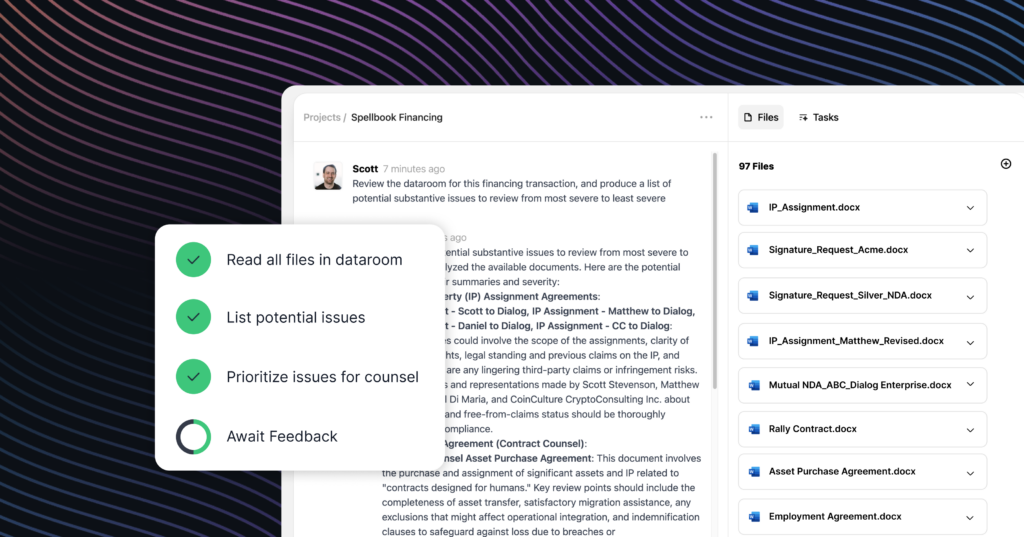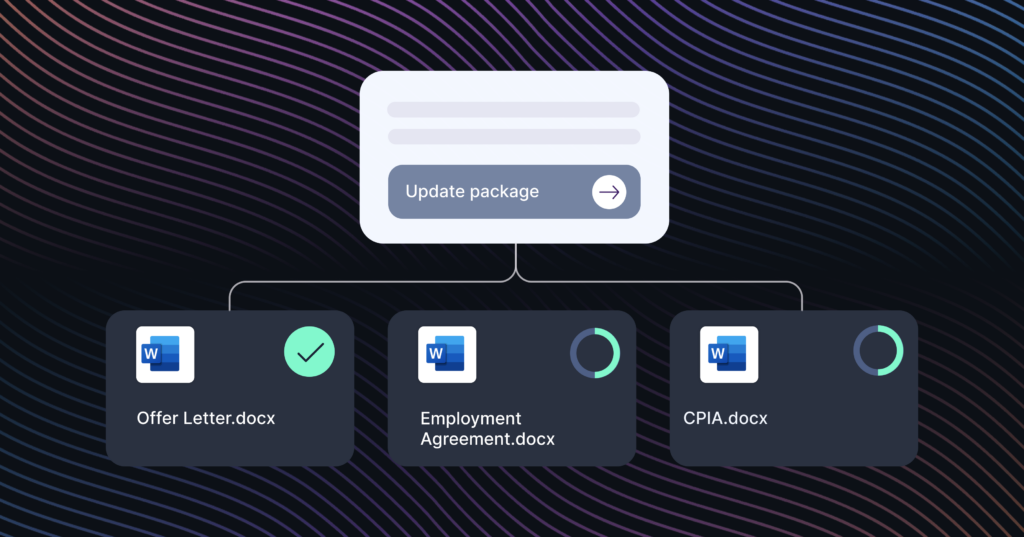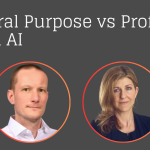Canadian-founded Gen AI contract review and drafting startup Spellbook has significantly expanded the capabilities of its product with the release today (22 August) of Spellbook Associate, which uses agent technology to help plan and execute legal projects.
Spellbook is already described as a copilot for lawyers in the contract space but the new offering, which is being made available to customers first as part of their existing license and to others on a first come first serve basis, is capable of taking on hundreds of new legal workflows.
Agents are regarded as the next frontier of Gen AI technology. Where earlier tools will provide an answer and undertake a task in response to a prompt, agents are capable of more complex deliverables across various documents and applications. They can cross reference multiple sources, which helps to improve the accuracy of their answers. They can also self-correct.

Spellbook Associate can use a single prompt to work through legal matters such as producing financing documents from a term sheet, reviewing hundreds of documents for risks and inconsistencies and revising employment packages.

“Just as AI agents have been rapidly adopted across software engineering over the past six months, we believe they’re coming to knowledge workers in every industry. We’re proud to be the first to bring a true ‘AI Colleague’ to lawyers,” said Scott Stevenson, Spellbook’s CEO and co-founder.
While Stevenson says Spellbook is the first to launch an AI agent for legal work there are others who may argue they hold that title, such as Wilson Sonsini’s chief innovation officer David Wang, who in May launched an AI contracting agent with Dioptra AI. Nonetheless, this is a significant and exciting development and undoubtedly up there as a first.
In a demonstration to Legal IT Insider, Stevenson said: “Our agent can take a task and break it down into steps working across a document. So, in a financing transaction you can ask it to take a term sheet and update four standard documents based on that. You’re really going from having help with a task, to having an assistant, which is really big for the industry. It can do data room review and there are many more use cases where you need to cross reference across documents. It’s core ability is that it breaks tasks into plans that it can execute and revise.”
For a data review Stevenson says: “You may have a thousand documents, and you need to go through them to flag issues. We can cross reference documents, flag issues, and find matches. These are the sorts of cases that are going to be new.”
Agent technology means that we are no longer just talking about fine turning the model, they are able to self-correct, which Stevenson says makes them “surprisingly resilient.” The significance of self-checking should not be underestimated. Stevenson says: “What this really comes down to is that it can plan like a human; check its work; execute tasks and deliver a project. It’s those steps that make it powerful and what makes it really special is that it corrects its own work. We’ve been working on this for a year and in the first wave none of it worked but when we introduced the ability to check its work, that changed.”
In terms of the inevitable ‘if and when’ the agent gets something wrong, Stevenson says: “We’re never saying it’s the answer; it suggests changes and it’s up to the user whether to accept that or not. You still have to have your hands on the steering wheel.”
The new Associate is targeted towards transactional work, but Stevenson said: “We’re launching into early access and seeing what people do with this. I think there will be a lot of use cases that we haven’t expected.”
This new launch meets the demand among Spellbook’s early customer base for the ability to work on multiple sets of documents. Stevenson said: “We have over 2,500 customers on board now and there have been a lot of requests for these features. People wanted a more comprehensive workflow.”
Powered by large language models like OpenAI’s GPT-4 and Anthropic, Spellbook is backed by investors including Thomson Reuters Ventures, Inovia Capital, The Legaltech Fund, Bling Capital, and Moxxie Ventures.
As we see more of these types of agentic offerings it will inevitably reignite the existential debate around the way that junior associates are trained and deployed. Spellbook says its Associate will allow lawyers to focus on higher-value activities such as negotiation and building client relationships and enable small to medium-sized law firms to effectively compete for opportunities typically reserved for larger firms. As with the first gen AI wave, firms need to carve out time to think, plan and test the new technologies, with a view to how they can help with a long term strategy.
To find out more see: https://www.spellbook.legal/












